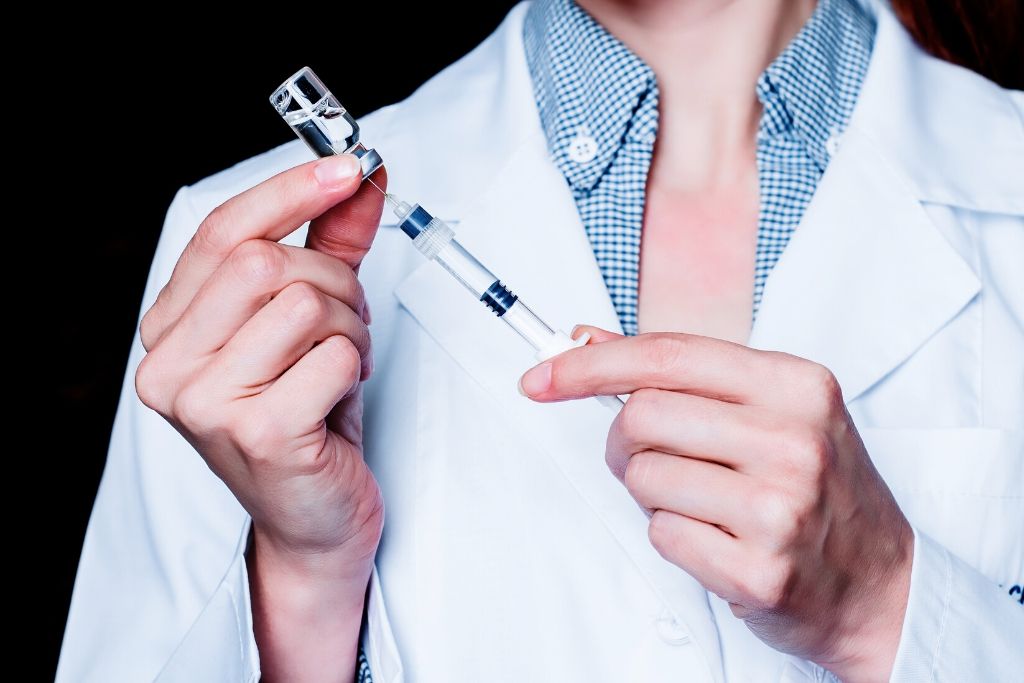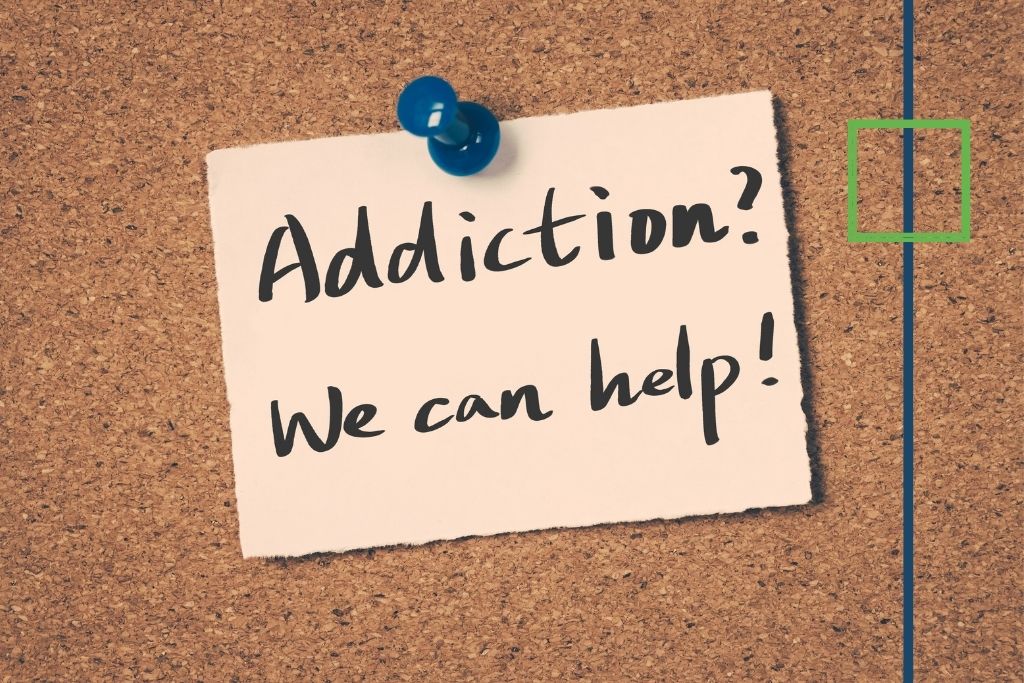What is a Vivitrol Shot?
Vivitrol is the brand name of Naltrexone. It blocks the effects of opioid medication, including pain relief or feelings of well-being that can lead to opioid abuse. Vivitrol shot can be used to help people maintain abstinence while recovering from alcohol or opioid dependence. While naltrexone hydrochloride is for both daily and once-a-month dosages, Vivitrol is injected once a month. This makes it easier to take than daily oral medications..
The US Food and Drugs Administration (FDA) [1] approved this drug to treat heroin addiction and alcohol use disorder. However, the FDA warns that a person should not be actively drinking at the initial Vivitrol administration. Also, a person must not have any opioids (either illicit or prescribed) in their system when they begin taking Vivitrol shots. Otherwise, they may experience withdrawal symptoms from opioids.
Vivitrol functions by blocking the effect that opioids, such as opioid pain medicines or illicit opioids have on the brain. It decreases the cravings that individuals may experience after they quit. With alcohol, it is not certain how Vivitrol actually works, but it seems to change how the brain responds to alcohol consumption. If you are curious if it’s possible to become addicted to Vivitrol? According to the National Institute on Alcohol Abuse and Alcoholism (NIAAA) [2], No. Naltrexone or Vivitrol is not habit-forming or a drug of abuse. It does not cause someone to become physically or psychologically dependent.

Get Your Life Back
Find Hope & Recovery. Get Safe Comfortable Detox, Addiction Rehab & Mental Health Dual Diagnosis High-Quality Care at the We Level Up Treatment Centers Network.
Hotline (877) 378-4154Uses of Vivitrol Shot
Vivitrol is a brand-name prescription medication used to:
- Treat alcohol dependence. For heavy drinkers and people struggling with Alcohol Use Disorder, or AUD, Vivitrol shots may help to reduce drinking.
- Prevent opioid dependence after opioid detoxification. Opioids are well-known prescription drugs used to treat severe pain. Opioids are also highly addictive substances. Vivitrol is meant to help people avoid becoming dependent on opioids again after they’ve used them in the past. You must stop using opioids for at least 7 to 10 days before taking a Vivitrol shot.

Vivitrol Shot FAQs
How long does the Vivitrol shot last?
- Vivitrol is a slow-release formulation of Naltrexone that is expected to last in the body for up to 30 days.
How does Vivitrol Works?
- Vivitrol works by blocking the effects of opioids and alcohol over a certain period.
How is Vivitrol Administered?
- The medication is injected into the muscle in one of the buttocks in a 380 mg dosage.
Can you overdose on Vivitrol?
- Although it is theoretically possible to overdose on Naltrexone, the risk is comparatively low for Vivitrol, as it is strictly administered by a licensed healthcare provider once a month.
What to expect after a Vivitrol shot?
- People may experience a few negative side effects after receiving the Vivitrol shot. Some also may experience severe depression and injection site reactions,
Get Help. Get Better. Get Your Life Back.
Searching for Accredited Drug & Alcohol Rehab Centers Near You? Or Mental Health Support?
Even if you have failed previously, relapsed, or are in a difficult crisis, we stand ready to support you. Our trusted behavioral health specialists will not give up on you. Call us when you feel ready or want someone to speak to about therapy alternatives to change your life. Even if we cannot assist you, we will lead you wherever you can get support. There is no obligation. Call our hotline today.
FREE Addiction Hotline – Call 24/7Vivitrol Shot’s Safety Profile
According to the National Center for Biotechnology Information (NCBI) [3], injectable naltrexone appears to be well tolerated, with a side effects profile similar to that of oral naltrexone (with the exception of injection-site reactions). Like oral naltrexone, the injectable formulation carries a black-box warning regarding liver toxicity. However, because of its lack of first-pass metabolism, injectable naltrexone (Vivitrol) significantly reduces liver exposure to the medication, reducing the risk of potential liver toxicity.
Effectiveness of Vivitrol Shot
Clinical trials showed that Vivitrol was effective in treating individuals with alcohol or opioid dependence. Vivitrol shot helps treat alcohol dependence by reducing cravings for alcohol. In one clinical trial, individuals who used the approved dose of Vivitrol had a 25% greater decrease in heavy drinking days than individuals who took a placebo (no treatment). Heavy drinking days were defined as days when men had five or more alcoholic drinks or women had four or more alcoholic drinks. This is according to the official website of Vivitrol [3].
For opioid dependence treatment, studies found that 36% of people who took Vivitrol didn’t use any opioids throughout the 24-week study. In comparison, only 23% of people who took a placebo didn’t use any opioids for the same time frame.
Who Should Not Take the Vivitrol Shot?
Certain individuals are not good candidates for Vivitrol. They include:
- Those who are using or have a physical dependence on opioid-containing drugs, or opioid street drugs like heroin. Your healthcare professional can test for dependence by giving you a small injection of Naltrexone.
- Those who are having opioid withdrawal symptoms. These withdrawal symptoms could include sleeplessness, anxiety, fever, yawning, sweating, teary eyes, goosebumps, runny nose, the shakes, hot flashes, muscle aches, twitches, or spasms, restlessness, vomiting and nausea , diarrhea, or stomach cramps.
- Individuals being maintained on buprenorphine (Suboxone or Subutex) or methadone for the treatment of opioid dependence cannot undergo Vivitrol shots to avoid the risk of overdose.
- People with acute hepatitis or liver failure should not take Vivitrol shot.
- Those who are allergic to naltrexone or any other Vivitrol ingredients.
Comfortable Facilities & Amenities
High-Quality Addiction & Mental Health Rehabilitation Treatment
Rehab Centers TourRenowned Addiction Centers. Serene Private Facilities. Inpatient rehab programs vary.
Addiction Helpline (877) 378-4154Proven recovery success experience, backed by a Team w/ History of:
15+
Years of Unified Experience
100s
5-Star Reviews Across Our Centers
10K
Recovery Success Stories Across Our Network
- Low Patient to Therapist Ratio
- Onsite Medical Detox Center
- Comprehensive Dual-Diagnosis Treatment
- Complimentary Family & Alumni Programs
- Coaching, Recovery & Personal Development Events
Side Effects of Vivitrol Shot
Vivitrol shots can cause serious side effects, including:
- Dizziness
- Vomiting
- Headache
- Muscle cramps
- Nausea and vomiting
- Painful joints
- Toothache
- Tiredness
- Trouble sleeping
- Decreased appetite
Other potentially serious side effects of Vivitrol shots include:
- Pneumonia
- Severe reactions at the site of injection
- Serious allergic reactions
- Liver damage or hepatitis
- Risk of opioid overdose
- Severe allergic pneumonia
- Depression and suicidal thoughts or actions

How is Vivitrol Shot Given?
Vivitrol is injected into a muscle. This injection is normally given once a month (every four weeks) and can be administered only by a healthcare professional.
You may notice redness, pain, itching, swelling, bruising, or a hard lump where the medication was injected.
Vivitrol shots or injections are only part of a complete drug abuse treatment program that may also include additional forms of therapy and monitoring. Follow your doctor’s instructions very closely to reap the full benefits of Vivitrol.
In case of emergency, carry or wear medical identification to let others know you are using this medicine.
Vivitrol Shot Overdose
After receiving Vivitrol shots, your body will be more sensitive to opioids if you use opioid medicine in the future. Using the same amount you used before could lead to overdose or death.
After opioid detoxification, individuals are likely to have reduced tolerance to opioids. Although the drug blocks the effects of opioids for 28 days after use, cases of opioid overdose with fatal outcomes have been reported in individuals who used opioids at the end of a dosing interval or when missing a dose.
Therefore, individuals should be aware that they may be more sensitive to lower doses of opioids after Vivitrol treatment is discontinued. Reduced tolerance is especially of concern at the end of a dosing interval. That is, near the end of the month after this drug was administered, or after a dose of Vivitrol is missed. This data is from FDA [5].
World-class, Accredited, 5-Star Reviewed, Effective Addiction & Mental Health Programs. Complete Behavioral Health Inpatient Rehab, Detox plus Co-occuring Disorders Therapy.
CALL (877) 378-4154End the Addiction Pain. End the Emotional Rollercoaster. Get Your Life Back. Start Drug, Alcohol & Dual Diagnosis Mental Health Treatment Now. Get Free No-obligation Guidance by Substance Abuse Specialists Who Understand Addiction & Mental Health Recovery & Know How to Help.
Depression, Suicidal Behavior, and Vivitrol Shot
According to Vivitrol’s official website, Vivitrol shots drug can cause serious side effects, such as depressed mood. Sometimes this leads to suicide, or suicidal thoughts, and suicidal behavior. Mood changes can happen with Vivitrol.
Alcohol- and opioid-dependent individual, including those taking Vivitrol shots, should be monitored for the development of depression or suicidal thinking. Moreover, families and caregivers of individuals being treated with this medication should be alerted to the need to monitor individuals for the emergence of symptoms of suicidality or depression.
Symptoms of suicidal thoughts or a depressed mood can include:
- Feeling hopeless
- Having thoughts of hurting yourself
- Feeling sad or crying a lot
- Not feeling interested in doing things you usually enjoy
- Feeling more angry or aggressive than usual
- Sleeping a lot more or a lot less than usual
Alcohol Dependence
- In clinical trials for the treatment of alcohol dependence, about 10% of people who took this drug had a depressed mood. In comparison, 5% of people who took a placebo (no treatment) also had a depressed mood.
- Suicide or thoughts of suicide affected 1% of people who took Vivitrol and didn’t occur at all in people who took a placebo. This is based on the study from the National Institute of Health (NIH) [6].
Opioid Dependence
- In a 24-week clinical trial for the treatment of opioid dependence, no one reported a depressed mood or suicidal thinking. This includes people who took Vivitrol or a placebo. This is according to NIH [7]
Find the Right Addiction Treatment at We Level Up NJ
There is no magic prescription cure to end opioid addiction or alcohol use disorder. Although Vivitrol shot is a great opportunity to help many people, like many other remedies to treat addiction, it must be used in combination with psychotherapy. Therapy offers social support, retraining of problematic behaviors, and a deeper understanding of how the addiction started [8].
If you or your loved one is struggling with opioid, or alcohol abuse, or addiction, indeed help is just a phone call away. To learn more, contact us today at We Level Up NJ Treatment Facility. We provide utmost care with doctors and medical staff available 24/7 for life-changing and lasting recovery. We provide an enhanced opportunity to return to a fulfilling and productive life.

Experience Transformative Recovery at the We Level Up Treatment Center.
See our authentic success stories. Get inspired. Get the help you deserve.



Start a New Life
Begin with a free call to an addiction & behavioral health treatment advisor. Learn more about our dual-diagnosis programs. The We Level Up treatment center network delivers various recovery programs at each treatment facility. Call to learn more.
- Personalized Care
- Caring Accountable Staff
- Comfortable Amenities
- Licensed & Accredited
- Renowned w/ 5-Star Reviews
We’ll Call You
Sources:
[1] [5] FDA – https://www.accessdata.fda.gov/drugsatfda_docs/label/2010/021897s015lbl.pdf
[2] NIAAA – https://pubs.niaaa.nih.gov/publications/combine/faqs.htm
[3] NCBI – https://www.ncbi.nlm.nih.gov/books/NBK64031/
[4] Vivitrol – https://www.vivitrol.com/opioid-dependence/what-is-vivitrol
[6] [7] NIH – https://dailymed.nlm.nih.gov/dailymed/drugInfo.cfm?setid=cd11c435-b0f0-4bb9-ae78-60f101f3703f